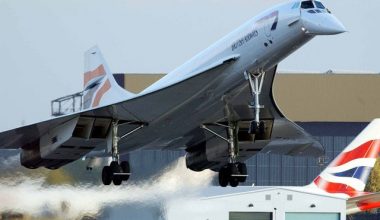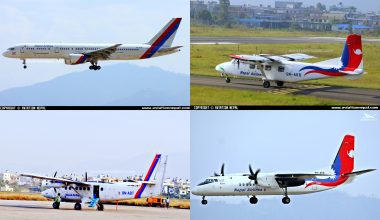Initially devised as the underpinning for cryptocurrencies like Bitcoin, blockchain technology has demonstrated its capacity to transform diverse industries. Aeronautics is no outlier. With decentralization, transparency, and security as core features, blockchain presents opportunities to optimize efficiency, fortify security, and enrich customer experiences within the aviation sector. This article delves into the repercussions and potential of blockchain technology in the metamorphosis of the aeronautics industry.
Deciphering Blockchain Technology
Blockchain constitutes a distributed ledger technology (DLT) that facilitates secure, transparent, and waterproof record preservation. It comprises a sequence of data-containing blocks connected to the previous one via cryptographic hashes, thus forming a chain. Blockchain’s decentralized essence guarantees data storage across multiple nodes or computers, rendering it highly resilient to hacking and data manipulation.
Aviation Applications for Blockchain
Blockchain technology boasts numerous applications within the aeronautics sector, including:
- Supply Chain Administration The aeronautics industry hinges on an intricate global supply chain involving manifold stakeholders such as manufacturers, suppliers, and maintenance providers. Blockchain technology can streamline supply chain processes by offering secure, transparent, and unalterable records of parts and components. This bolsters efficiency ascertains component authenticity, and curtails the risk of counterfeit components infiltrating the supply chain.
- Upkeep and Aircraft Records Accurate and current aircraft maintenance records are pivotal for safety and regulatory adherence. Blockchain technology can supply a tamper-resistant, transparent, and readily accessible history of an aircraft’s maintenance chronicle, permitting airlines, maintenance providers, and regulators to access and validate the requisite information expeditiously.
- Ticketing and Identity Governance Blockchain technology can simplify the ticketing process by facilitating secure, digital ticket issuance and obviating the necessity for intermediaries such as travel agencies. Moreover, blockchain can be harnessed for identity governance, enabling passengers to securely store their identification and travel documents on a blockchain-based platform. This would streamline the check-in procedure and augment security and privacy.
- Frequent Traveler Programs and Loyalty Strategies Blockchain technology can revamp regular traveler programs and loyalty strategies by providing a secure and transparent platform for monitoring and managing reward points. This would render it more convenient for passengers to redeem their points and empower airlines to devise more flexible and customer-centric reward programs.
- Inter-Organizational Data Exchange The aeronautics industry engages multiple stakeholders, such as airlines, airports, air traffic control, and customs authorities, who require real-time information sharing. Blockchain technology can expedite secure and efficient data exchange among these stakeholders, enhancing collaboration, decision-making, and overall operational efficiency.

Repercussions of Blockchain Technology on Aviation
Blockchain technology adoption in the aeronautics industry can yield various benefits, such as:
- Enhanced efficiency: Streamlining processes like supply chain management, maintenance records, and ticketing, blockchain technology can bolster operational efficiency and reduce costs for airlines and other industry stakeholders.
- Augmented security and transparency: The decentralized and tamper-resistant nature of blockchain technology ensures record and data authenticity, mitigating the risk of fraud, counterfeiting, and other evil activities.
- Superior customer experiences: Blockchain technology can facilitate more seamless and personalized customer experiences, from ticketing and identity management to loyalty programs and reward schemes.
- Increased collaboration and data sharing: By offering a secure platform for inter-organizational data sharing, blockchain technology can fortify collaboration and decision-making among industry stakeholders.
Challenges and Considerations
Despite the potential advantages, several challenges and considerations exist for blockchain technology adoption within the aeronautics industry:
- Scalability: The aeronautics industry involves vast data and high transaction volumes. Blockchain technology must be sufficiently scalable to accommodate these requirements without compromising performance or security.
- Interoperability: With multiple stakeholders involved in the aeronautics industry, ensuring that different blockchain platforms can seamlessly interact with one another and existing systems is crucial.
- Regulatory compliance: Aeronautics is a heavily regulated industry, and the implementation of blockchain technology must adhere to various regulatory requirements, such as data privacy and security standards.
- Education and awareness: Many industry stakeholders may be unacquainted with blockchain technology, necessitating a concerted effort to educate and raise awareness about its potential benefits and applications.
- Implementation costs: The initial investment required to implement blockchain technology in the aeronautics industry can be considerable, and organizations must thoroughly assess the cost-benefit analysis before adopting this technology.
Also Read: Airbus A320 recently on the brink of a potential incident
Future Outlook and Potential
Despite these challenges, the future outlook for blockchain technology in the aeronautics industry is optimistic. As the technology continues to evolve and overcome scalability and interoperability issues, its adoption is anticipated to grow.
Several aeronautics companies and organizations have already started examining blockchain technology’s potential. For instance, the International Air Transport Association (IATA) has introduced a blockchain-based digital passport called the IATA Travel Pass, intended to simplify the travel experience amid the COVID-19 pandemic.
Furthermore, major airlines such as Air France-KLM, Lufthansa, and British Airways have invested in blockchain startups and launched pilot projects to investigate the technology’s potential applications.
With ongoing research and development, blockchain technology could become integral to the aeronautics industry’s digital transformation, fostering increased efficiency, security, and customer satisfaction.
Epilogue
Blockchain technology can revolutionize the aeronautics industry by streamlining processes, enhancing security and transparency, improving customer experiences, and fostering greater stakeholder collaboration. While challenges persist regarding scalability, interoperability, and regulatory compliance, the prospects for blockchain technology in aeronautics are optimistic. As the technology continues to mature and gain traction, it could play a crucial role in driving the digital transformation of the aeronautics industry, creating a more efficient, secure, and customer-centric ecosystem.






